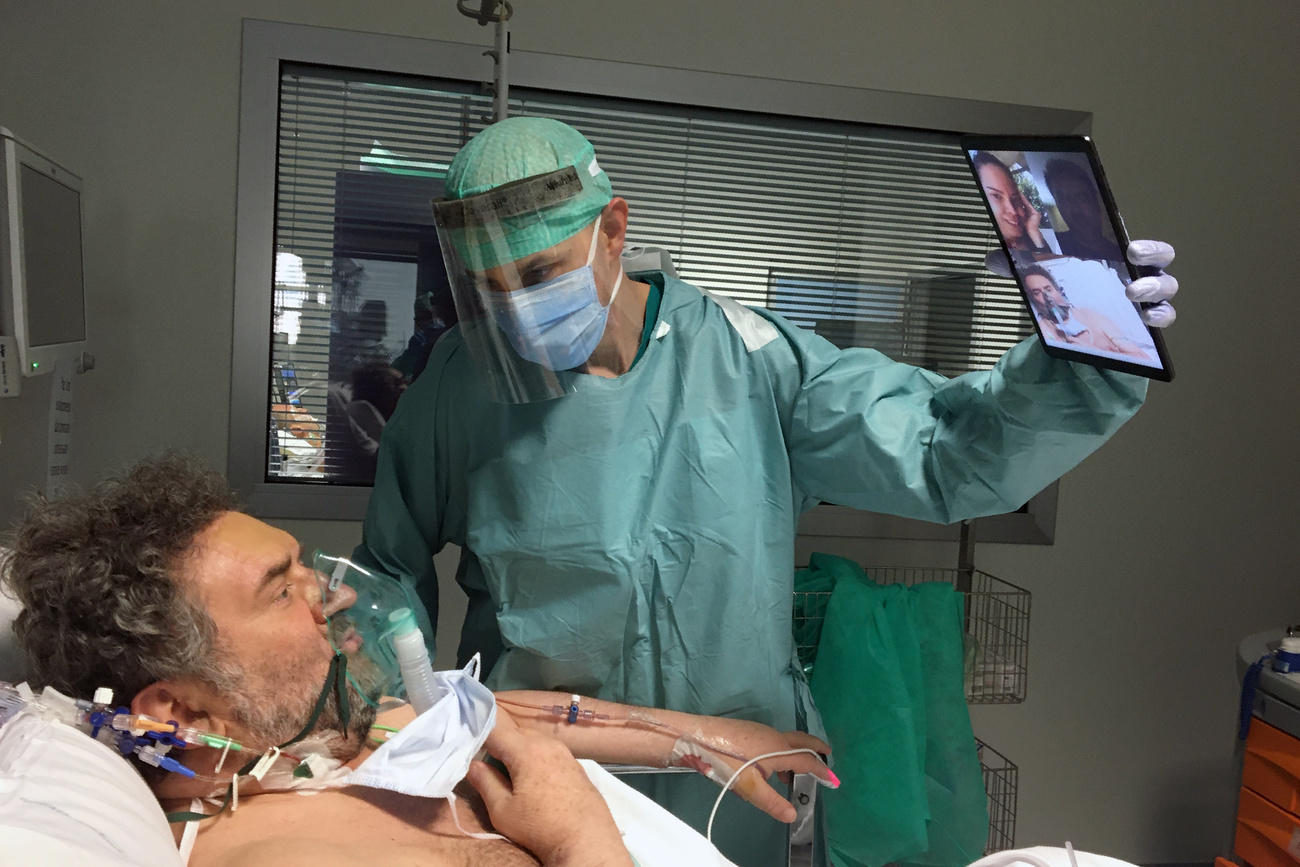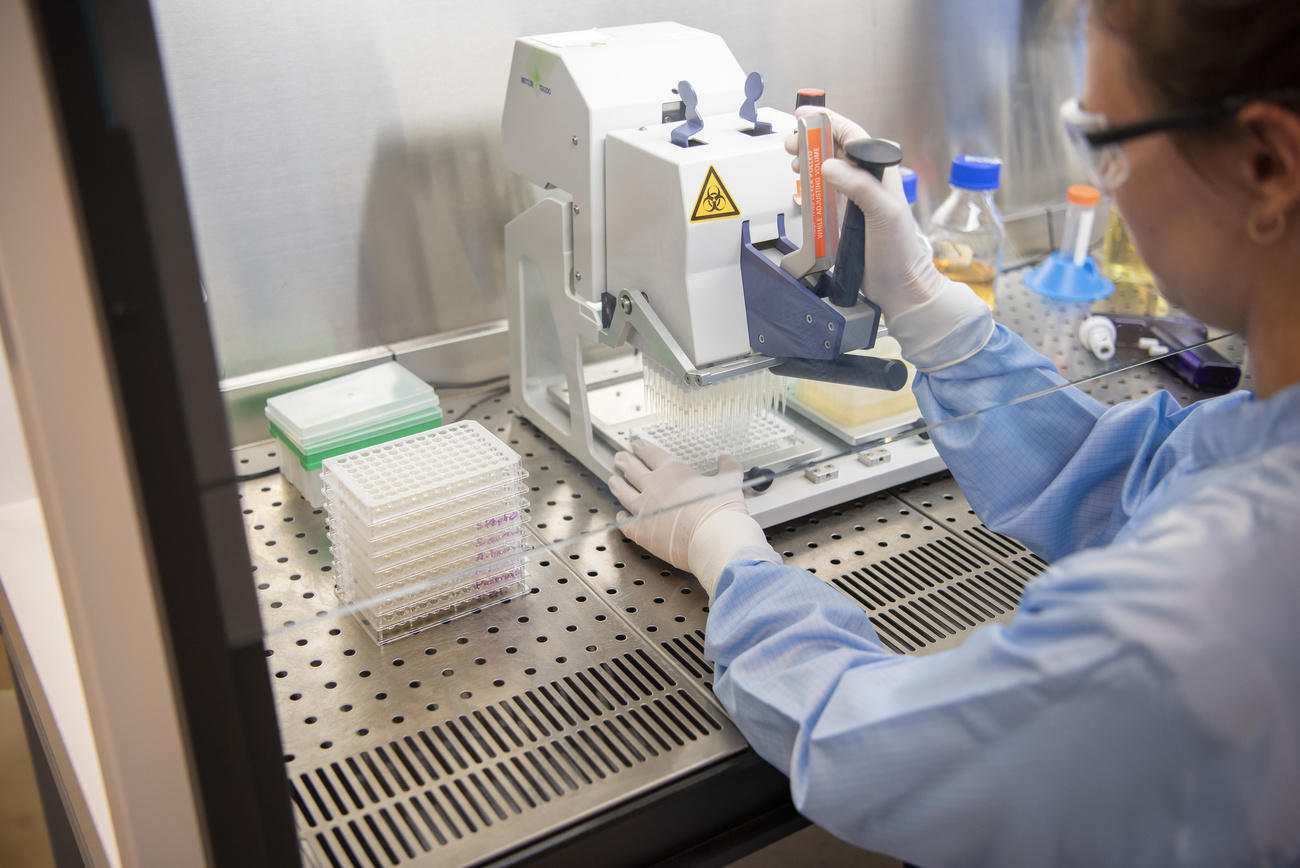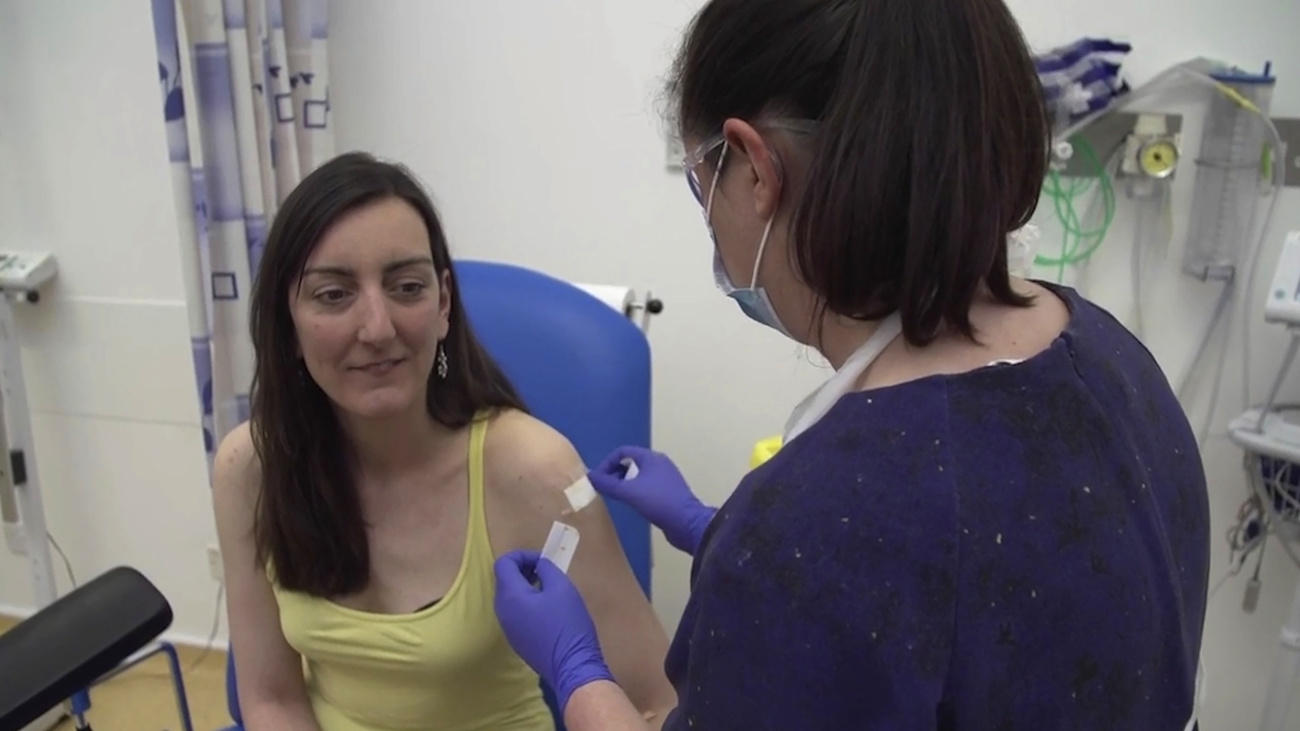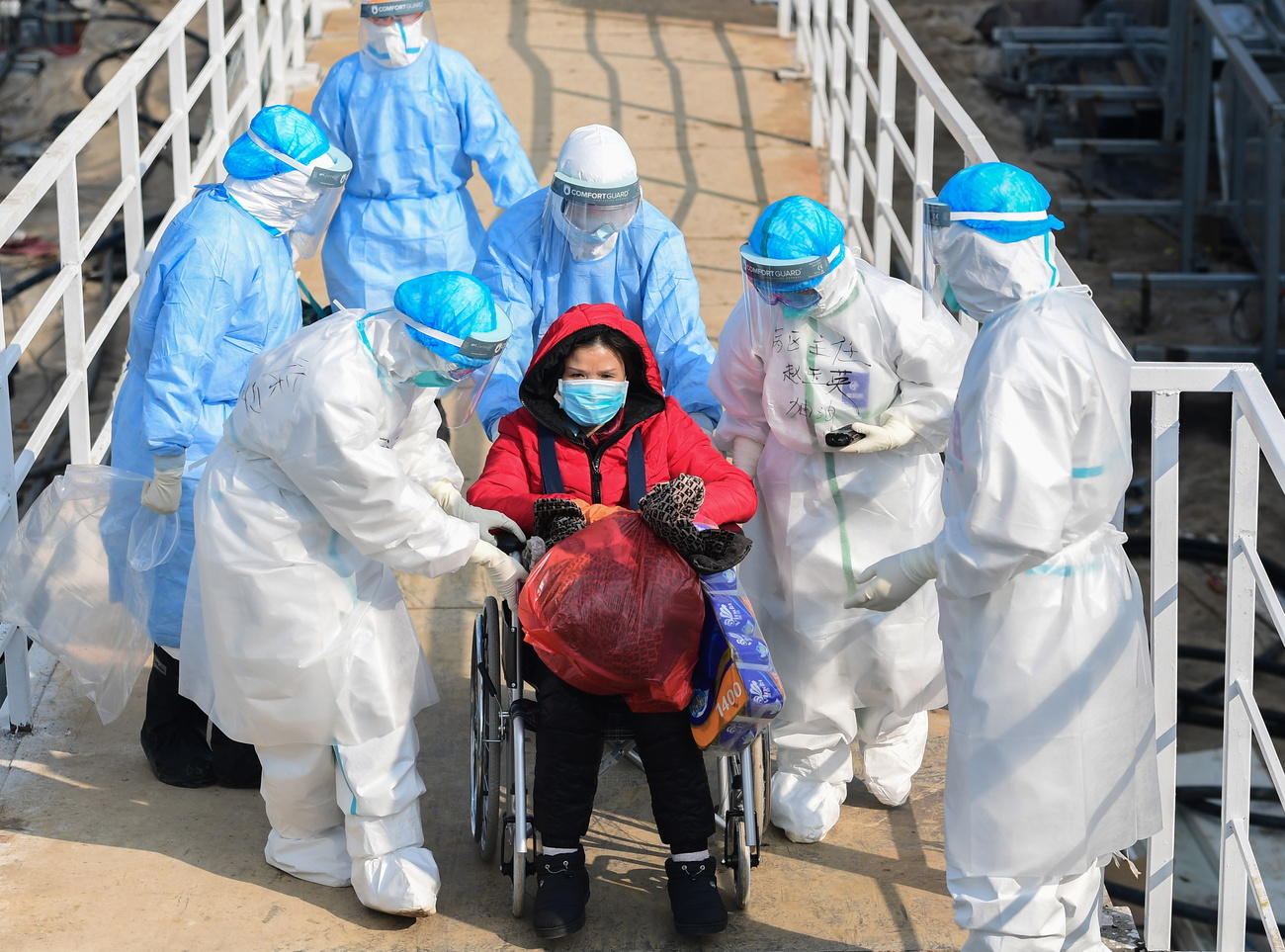Covid-19 to dominate ‘unprecedented’ virtual World Health Assembly

In a historic first, health officials will be logging in on Monday for a two-day online World Health Assembly (WHA), devoted largely to the Covid-19 pandemic. Fair access to vaccines and treatments, and an independent evaluation of WHO's response to the pandemic are set to dominate proceedings amid corona tensions.
Instead of meeting for ten days in a huge conference hall at the United Nations Palais des Nations in Geneva, the pandemic means that government health officials and experts from 194 member states will be joining a virtual abbreviated version of the annual event.
“Covid-19 has had a tremendous effect on the governance of the UN system, even the Security Council is working remotely,” Geneva Graduate Institute Professor Gian Luca BurciExternal link, former chief WHO legal advisor, told a briefing last week. “The International Labour Conference will not meet this year, but obviously the World Health Organization has to meet to send a strong signal on Covid-19 and to continue to provide essential institutional duties.”
The streamlined agenda includes a handful of VIP speakers and votes for key WHO posts like executive board members. But coronavirus will overshadow the decision-making body’s proceedings, webcast live.
WHO Director-General Tedros Adhanom Ghebreyesus’ track record and background is sure to come under renewed scrutiny when he gives a statement on the global pandemic response. Over 4.6 million people have been reported to be infected by the coronavirus globally and over 310,000 have died.

More
Global cooperation needed to prevent Covid-19 drugs ‘free-for-all’
Many health policy experts have praised Tedros’ handling of the outbreak. But the Trump administration has lambasted the WHO for being slow to react to the outbreak and for being “China-centric”. US officials last month announced a suspension of funding to the international health body.
Swiss President Simonetta Sommaruga opened the assembly on Monday, pledging her country’s “full support and cooperation” to its leader.
“Director-General as you go through this crisis be assured that you have the Switzerland’s full support and cooperation,” said the Swiss president, while urging member states to “act together” in the crisis.
EU Resolution
In perhaps the highlight of the 73rd WHA, health ministers will debate and vote on a draft European Union resolution on the Covid-19 response. States have reportedly reached an initial agreement after days of intense negotiations.
Switzerland, which is home to pharmaceutical giants Roche and Novartis, participated actively in the negotiations. “We accept the draft,” Daniel Dauwalder, spokesperson for the Federal Office for Public Health, told swissinfo.ch. “Switzerland is committed to a coordinated and united international response to overcome the current crisis.”
Calling for unity and solidarity, the agreed-upon draft seen by Health Policy WatchExternal link recalls WHO’s lead role and encourages the global health community to work closer together to ensure wide and equitable access worldwide to Covid-19 medicines and vaccines.
The US had reportedly objected to parts of the plan, but references to “universal, timely and equitable access” to Covid-19 treatments and vaccines, which had apparently been problematic, appear to remain. But it is unclear whether the US will support it when it comes to a vote by consensus at the plenary session.
The resolution urges states to work together to develop treatments and vaccines via “voluntary pooling and licensing of patents to facilitate timely, equitable and affordable access to them”. This builds on an initiative launched earlier this month by the EU, Britain, Norway, Japan, Canada, and Saudi Arabia – without the US – which raised $8 billion (CHF7.7 billion) in pledges for Covid-19 vaccines and treatments.
The text adds that such efforts should be consistent with existing “TRIPS flexibilitiesExternal link” – the legal World Trade Organization (WTO) framework that allows countries to legally override patent laws when a national or international health interest is at stake.

More
Covid-19 is both threat and opportunity for Swiss biotech
‘People’s vaccine’
In a parallel initiative, around 150 world leaders and experts, including former Swiss President Ruth Dreifuss, signed an open letterExternal link urging health ministers at the WHA to rally behind a “people’s vaccine” without patent restrictions.
But the fair distribution of vaccines and treatments remains a huge challenge, as shown by the recent political storm in France with the Paris-based pharma company Sanofi. Last week CEO Paul Hudson told the Bloomberg news agency that the US government had the right to the largest pre-order of an eventual Covid-19 vaccine “because it’s invested in taking the risk”. But Sanofi later appeared to backtrack, stating that they “have always been committed in these unprecedented circumstances to make our vaccine accessible to everyone.”
The draft resolution also calls for an “impartial, independent and comprehensive evaluation” of the WHO-coordinated international response to Covid-19 “at the earliest appropriate moment”. This is something the US has been calling for and which reportedly has wide state support.
The Taiwan question
Another sensitive issue in the run-up to the WHA has been Taiwan. The island, with the strong support of the US, stepped up its lobbying to be allowed to take part as an observer at the WHA, saying that to lock it out was to create a gap in fighting the coronavirus pandemic. This raised objections from China, which considers Taiwan one of its provinces.
Thirteen member states recently submitted a proposal to support Taiwan’s participation. China viewed the move as an open slight and there were fears in Geneva that the virtual meeting might get bogged down in political wrangling.
Taiwan attended the WHA as an observer from 2009-2016 but China blocked further participation after the election of Taiwan President Tsai Ing-wen, who China views as a separatist, an accusation she rejects. The WHO, meanwhile, said it has no mandate to invite Taiwan to the WHA and that only member states could decide.
However, despite strong efforts Taiwan did not get invited to the WHA due to Chinese pressure, its foreign minister said on Monday, adding they had agreed to put the issue
off until later this year.
“This is an unprecedented WHA,” declared Suerie MoonExternal link, co-director of the Global Health Centre at the Geneva Graduate Institute.
“WHO is in the public eye as it has never been before, but it is also under fire like perhaps never before… It’s clear that this is a moment to think beyond business and politics as usual and for the WHA it will be a test to see if that’s at all possible.”

More
Coronavirus: the situation in Switzerland

In compliance with the JTI standards
More: SWI swissinfo.ch certified by the Journalism Trust Initiative














You can find an overview of ongoing debates with our journalists here . Please join us!
If you want to start a conversation about a topic raised in this article or want to report factual errors, email us at english@swissinfo.ch.